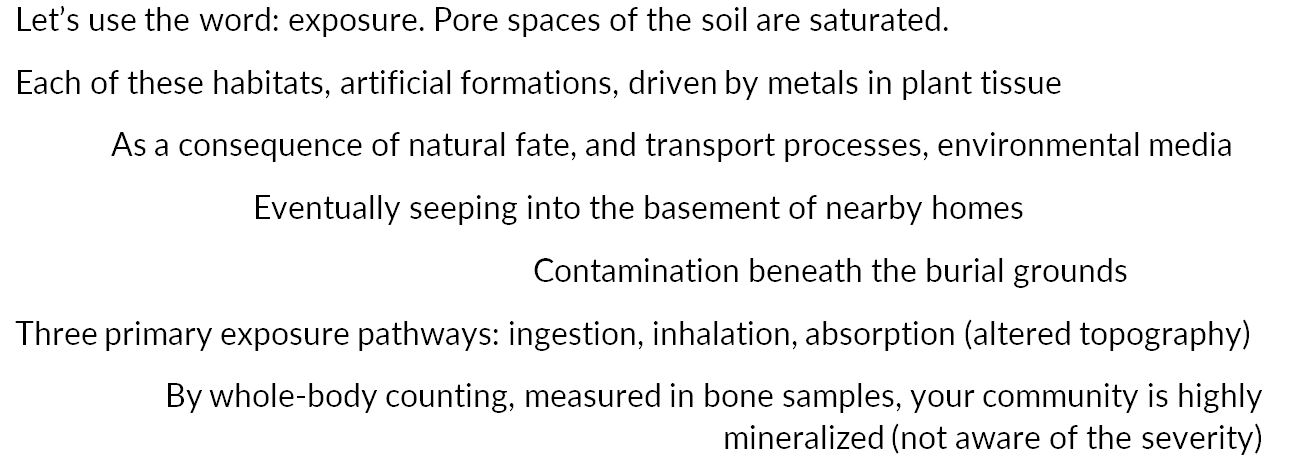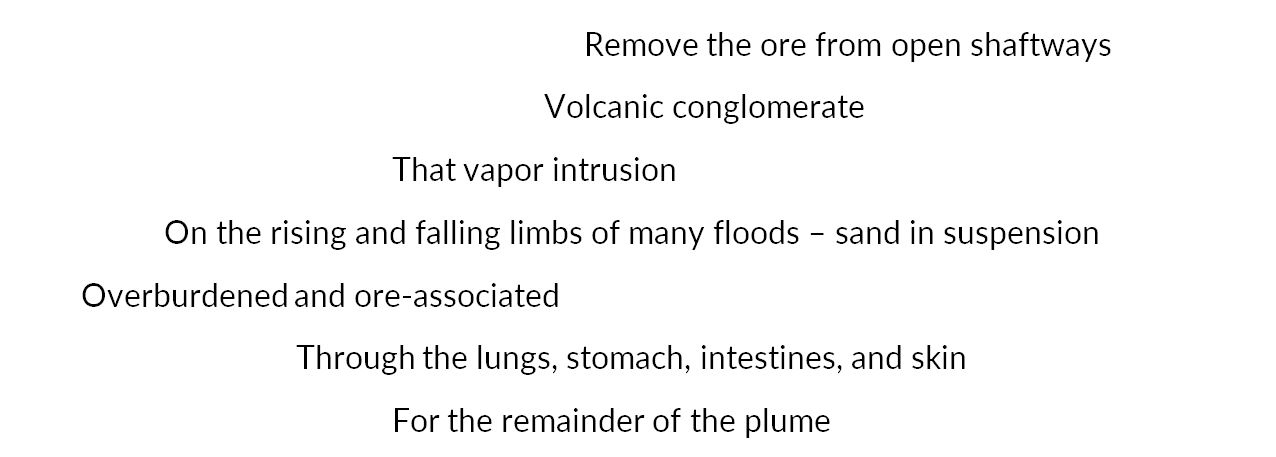for Jeni
Jasmine, jawbreakers, jewsharps—things I have not put in my mouth
Jeni, nono, Jenifer—daughter, mother, artist
Knowledge is power, PET scans are not
Last night, no pottery, just marionberries
Mammary, marriage, maternity, masturbation
Mom, are you drunk again!
Nowadays, I remember everything: the t.v., my paintings, my polyurethane statues,
how Xavier’s hands felt on our wedding night
Nowadays I see that little job I had one October, I painted flats for Halloween Horror
Nights—it was the best job ever
October has cold hands
Pain scares me, but painkillers I don’t mind
PET scan—the gray of morning with a sun rising from the center
Quilts on my legs, tubes in my nose and arm, hard mash potatoes with white gravy
Quiet is that thing they give you when you only wanna talk
Red Poppy: This flower grows up my neck/it blossoms in back of my head/a symbol
of life, of blood, of those we lose/in transit like quarters or laundry tickets/Someday
soon I will become/a field of wild poppies and you will lie/in my fragrance, dozy
and content/the best time you ever had with me.
Remember Universal Studios? David’s brother and the smell of paint. He said even
coats, Jeni. Even coats. I had headaches. Xavier brought me beer and mezcal.
Send it to my daughter: the poem about the red poppies.
So much time now for pottery, to feel clay turning in my hands, to hold it steady and
give it form, to pare away dried clay from under my fingers
Toxic on the stereo, rhombuses of light on a parkay floor, Xavier and I dancing, our first kiss
Tell Xavier he can have his anal now
Using me for poetry?
Vanish like my breasts
Vibrate as the world vibrates
Who will take my daughter to get her prom dress?
Xanax and a bottle of Zinfandel
You wrote me several times, David: are you coming to my funeral?
You wrote me several times, David; you wanted to meet me several times, just not with your
wife or kids, always at coffeehouses or the Farmer Brothers in Rubidoux
Zinfandel and a bottle of Xanax
Again, Xavier wants anal
All the things you put inside yourself
Both of them, my nipples, gone cuz, Gawd, I hate asymmetry
Canvas? I’m working with polyurethane now
Can you please not use my name in your poetry?
Death, I don’t mind; this shit hurts.
Destroy my paintings, burn my canvases, smash my pots
Did you send the poem about the poppies? Send it to my daughter.
Erasure is what I look for; I could be erased, and Xavier still wouldn’t realize I was gone
Every day, every goddamned day, Xavier stays at home, but the dogs freakin visit
Fashioning Halloween costumes for Shelly and her date: we argued before the pic
From dinner on, I had this pain, it hurt my stomach, I kept walking sideways down
the pier and Shelly, you remember Shelly? She’s like Mom, drunk again?
Gawd, I hate asymmetry
Hot, still in the hand, gradually warming, gradually cool, put away
Indigo is the color of sky before sunlight, the color I always wanted my eyes to be
Is this how you see me, David?
Source: Facebook posts and Messages 2010-2015
Method: One night, I am working on another set of poems, when I receive an IM from Jeni telling me that she has cancer. It has been six months since we last communicated. I had a poem which I had IMed her, one she wanted me to publish called “Red Poppies.” I was uncertain about the poem. Over the next few months, we reconnect because I suffer from insomnia and her pains keep her up most nights. This poem is an abecedarian, stitched together like a cento from bits, pieces, words and phrases exchanged during both those and earlier conversations via IM. Then, I rearranged the lines that I started with J and ended with I. The format seemed to work best.
David Owen Miller is a Latin teacher in South Los Angeles. He has an M.A. in English/Creative Writing from LMU. He has published work in Rattle, Crack The Spine, Dodging The Rain, Cold Coffee Stand, Rise Up Review and other journals. He loves teaching and hanging out with his daughters and of course, writing poetry.


